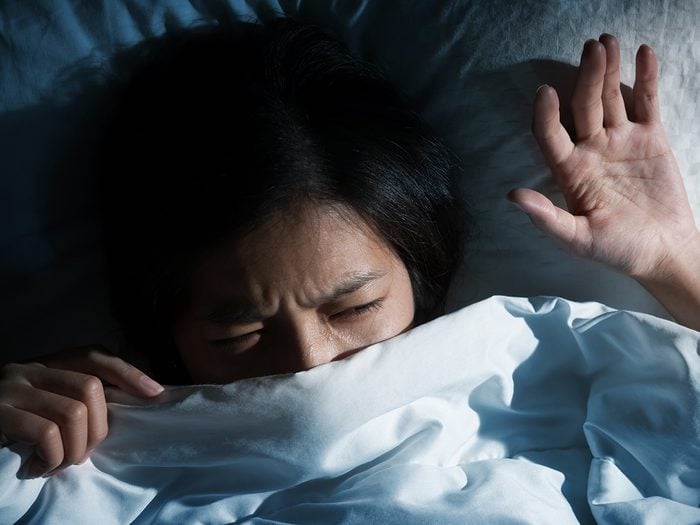
Living with PTSD
I lived with post-traumatic stress disorder (PTSD) for years before finding the correct course of treatment or diagnosis. Yet some people go decades longer without ever knowing what’s wrong with them. Awareness around the immediate signs of post-traumatic stress disorder has become slightly more prevalent today. So too, is the acknowledgment that it isn’t only something war veterans experience. Signs include nightmares, flashbacks, panic attacks, intrusive thoughts, reliving the event over and over again, and fearing for your safety.
Many life situations may contribute to PTSD including being directly impacted by acts of war, terrorism, or being the victim of a crime. A natural disaster or accident, witnessing or being a direct victim of sexual or domestic abuse, medical trauma, and the loss of a loved one are other examples. Even growing up in a dangerous or impoverished neighbourhood or an unstable family environment are factors. Keep in mind that many of these symptoms are common after a traumatic event. If they last longer than a few months, are very upsetting or disrupt your daily life, you may meet the diagnostic criteria for PTSD.

Initial signs and symptoms of PTSD
When looking at the various ways people attempt to cope with exposure to one or a series of traumatic events, it’s important to recognize the ways that they may manifest, says Gary Brown, PhD, a licensed psychotherapist in Los Angeles who has worked with organizations like NASA and the U.S. Department of Defense. “You probably have a sense that something is wrong, you don’t quite feel like you normally do, and might alternate between feeling extremely upset or possibly nothing at all,” he says.
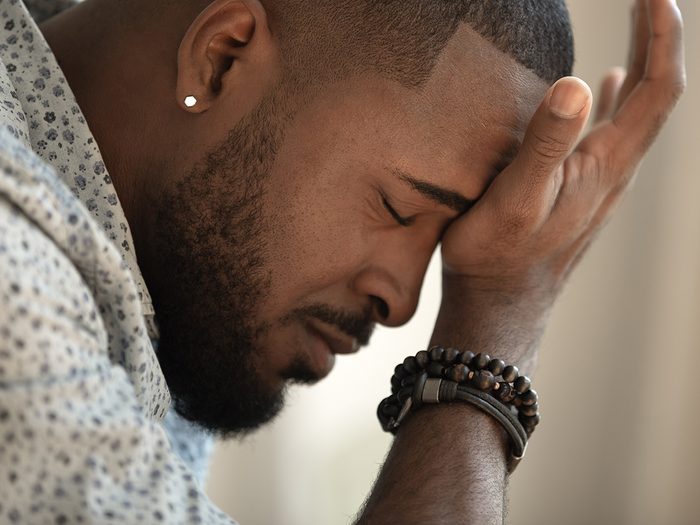
Hyperarousal
This is an intense experience of thoughts, feelings, behaviours, and physical sensations resulting from the traumatic event. “The body’s chemical reaction to the trauma can put the person in extreme survival mode we know as “fight or flight,” says Dr. Brown. “When in a state of fight or flight—and we should really add the element of ‘freeze’ when we become immobilized by fear—we feel completely out of control. Needless to say, this is a very painful and scary.” You may find that you get easily overwhelmed or worked up and can’t calm down, or can’t fall asleep at night.

Intrusion
This is the experience of persistent intrusive thoughts and feelings about the event—and sometimes, they’re unrelated but disturbing in nature. “The more it plays, the more distressed you become, because you are constantly reliving the trauma,” Dr. Brown explains. “The problem is that you can’t find the ‘off’ switch, and the more it repeats, the worse you feel. Despite your best efforts, no amount of will-power or any form of distraction that you might normally use, you can’t stop the loop.” Essentially, it feels like your mind is out of control.
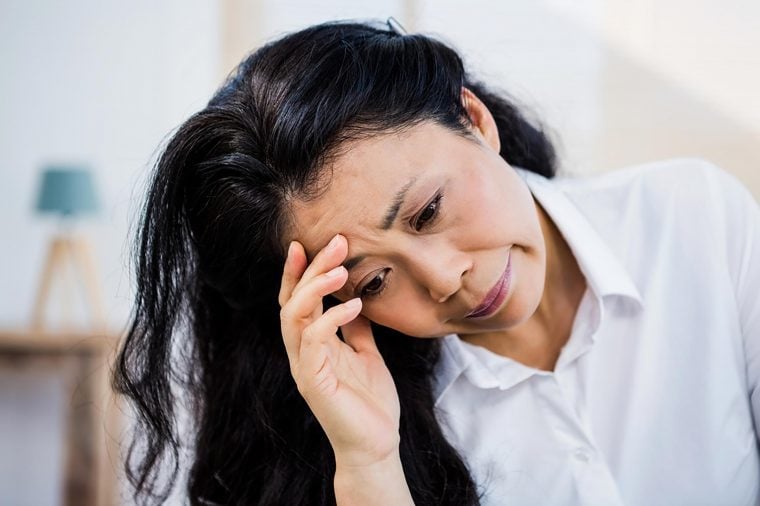
Re-experiencing
The National Institute of Mental Health explains that re-experiencing is common among PTSD sufferers. These symptoms include reliving the trauma over and over, and having bad dreams and frightening thoughts. “Re-experiencing symptoms may cause problems in a person’s everyday routine,” the institute notes. “The symptoms can start from the person’s own thoughts and feelings. Words, objects, or situations that are reminders of the event can also trigger re-experiencing symptoms.”
Here are eight signs of stress you might be ignoring.
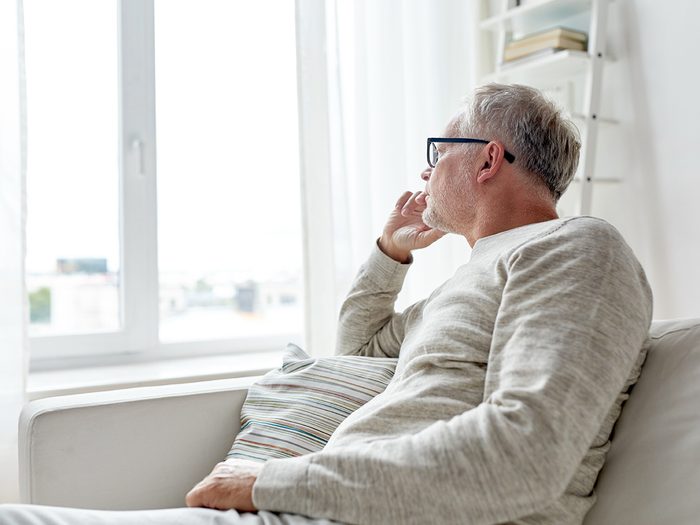
Avoidance
It is common to try and steer clear of anything that could continue to trigger the persistent thoughts and feelings relating to your traumatic experience, says Dr. Brown, who also serves as a disaster mental health specialist. “One of the most common themes associated with this phenomenon is the desire to avoid any people, places, or objects that cause us fear and pain. It’s really a very normal response to an abnormal experience, especially when we’re in survival mode. We don’t want to continue to experience the pain.”

Risky behaviour
When someone experiences a potentially traumatic event, says Mallory Grimste, a therapist in Woodbridge, Connecticut, it is likely that person did not have much control over the situation. “When we feel confident and in control of our lives and circumstances, we tend to feel better in general,” Grimste says. “People will often attempt to engage in risky behaviours to recreate similar circumstances, or feelings and experiences related to the original trauma so they can regain a sense of control with the hope that the outcome will be different than the original experience.” She notes that it is not always a conscious decision, either. Some examples of risky behaviours may be reckless driving or walking alone in dangerous areas. Other examples include instigating arguments or procrastinating just to push the envelope.
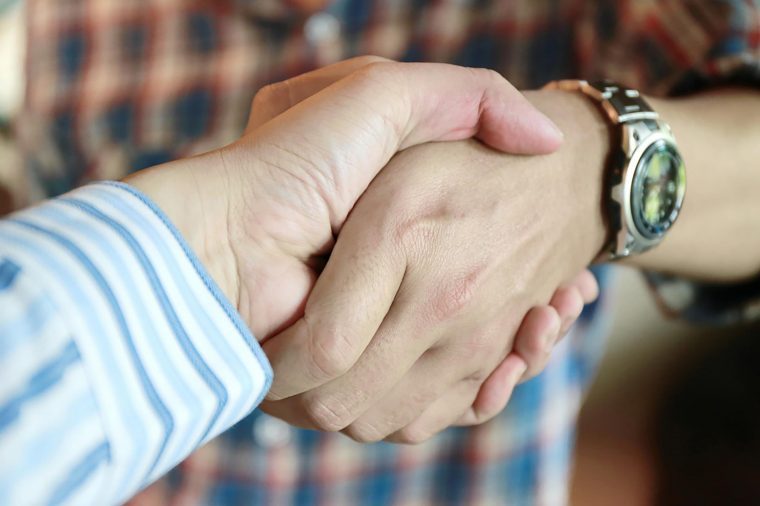
Inability to trust
This can be related to a lack of trust in other people and the greater world around you but is often more likely rooted in a lack of trust in yourself. “After a traumatic experience, it’s common to be generally distrusting of others, the world, and one’s self,” Grimste says. “You might feel like you can’t take anything at face value, or you may be subconsciously ‘testing’ your relationship with people or constantly questioning the other person’s commitment or loyalty to you.” Rifling through their phone or mail and frequently texting just to “check in” are some examples. “On the other hand, you might have the opposite reaction and have an avoidant reaction, which means you won’t engage in any real relationship with anyone because that kind of vulnerability feels very risky,” she explains.
Don’t miss these expert tips on how to rebuild trust.
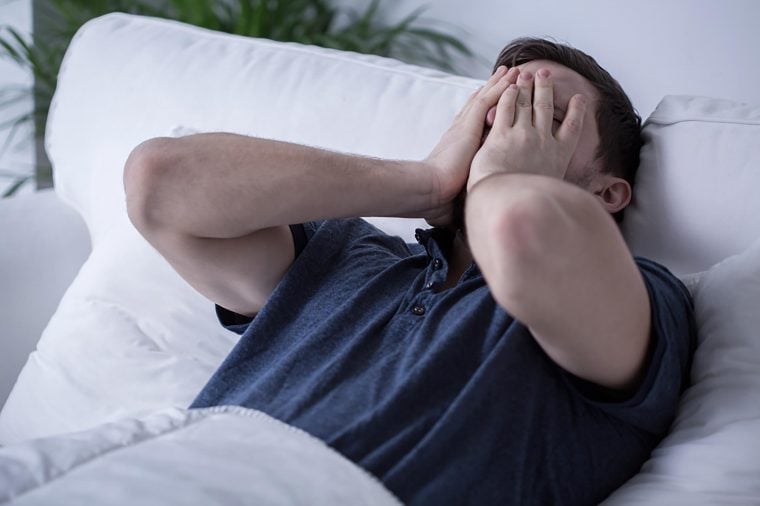
Hypervigilance
Living with trauma can make work, social gatherings, even commuting a terrifying and exhausting experience. Over time, we learn and adapt our behaviours based on our past experiences and how we’ve processed them. Grimste notes that if you’ve experienced a traumatic event, you feel that if it happened once, it can happen again. So, hypervigilance provides a sense of security. In other words, if someone is always “expecting the unexpected” they can be better prepared. As a result, they hope to enact a different outcome than when the trauma happened. Basically, it’s an attempt to protect yourself. “You are always on the lookout for when the next ‘bad thing’ is going to happen and actively try to prevent it by anticipating the threat and protecting yourself against it before it’s too late,” she says.
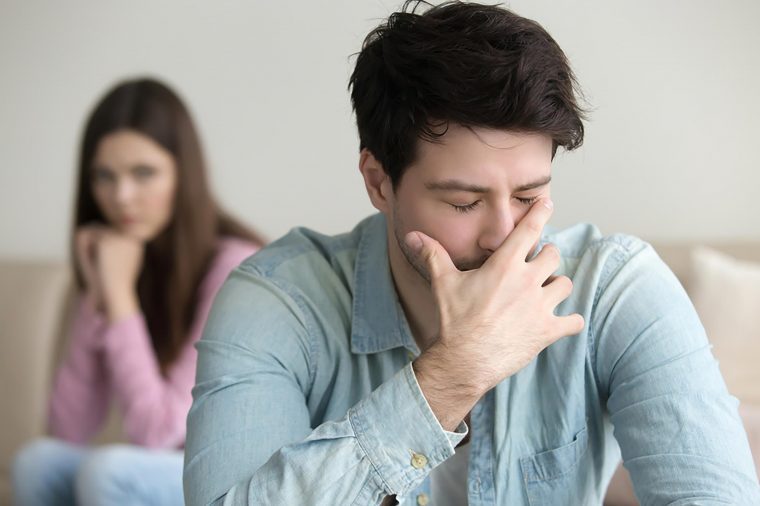
Social withdrawal
It makes sense that to avoid all of the racing thoughts, anxiety, paranoia and other uncomfortable behaviours associated with PTSD that you might try to avoid being around people as much as possible. “Many people try to cope by withdrawing from typical sources of support, like family, friends, and colleagues,” says Dr. Brown. “The problem with social withdrawal is that we wind up leaving ourselves isolated and alone at precisely the time when we really need to be reaching out to others for help, comfort, and support. By withdrawing, we actually wind up prolonging our suffering.” Instead of withdrawing, he suggests, do the exact opposite. “Reach out to at least one or two people that you normally trust, and let them know what is happening to you,” he says. “This is one of the very best ways to begin your journey of recovering from the trauma.”
Consider these tips on how to make new friends as an adult.

Drinking or using drugs
There is a strong connection between PTSD and increased drinking or drug use, a behaviour often referred to as self-medication. However, this may turn into substance abuse. Substance use commonly includes misuse of alcohol or the use of marijuana, opiates, and benzodiazepines to boost “feel good” sensations. These behaviours can prevent you from fully recovering from PTSD. They often mask your feelings rather than appropriately, and safely, managing them.
Find out what booze really does to your body.
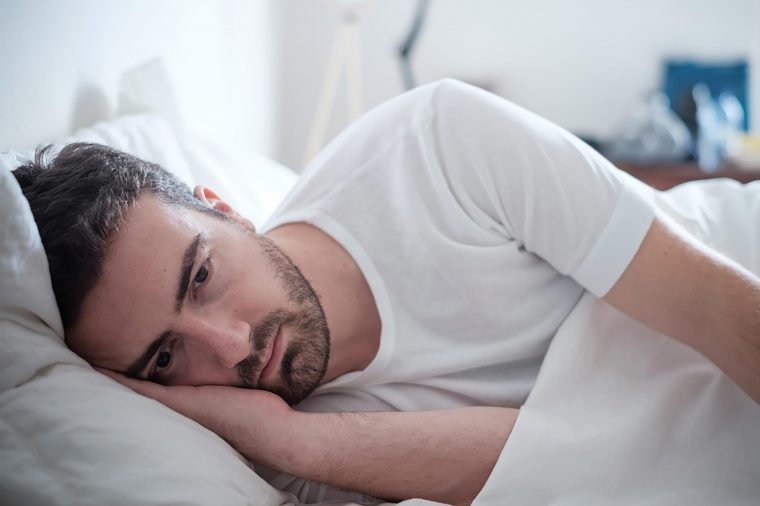
Avoiding normal activities
In addition to avoiding people, you may also start steering clear of other daily routines that once represented life inside of a comfort zone, Dr. Brown explains. “A good night’s sleep has been out of reach for hours, days, weeks, and possibly months, so you may have also stopped engaging in activities that normally brought you pleasure,” he says. This is common. But if you feel unable to function at all, it’s important to contact a physician.

Change in sexual behaviour or romantic relationships
People who are in a relationship and suffer from PTSD often find that their romantic relationships become dysfunctional. They may also engage in promiscuous behaviour. “You’ll probably have problems with intimacy, and likely can’t talk about your traumatic experience because it’s just too upsetting,” says Ken Yeager, PhD, clinical director of the Stress, Trauma and Resilience (STAR) Program at The Ohio State University Wexner Medical Center.
Learn to spot the signs of high-functioning depression.

Difficulty concentrating
Concentration may be challenging if you have PTSD. “Even ordering lunch at your favourite restaurant can become difficult as it’s difficult to pick between multiple options,” says Dr. Yeager. “For example, you’ll be at the grocery store, but won’t be able to remember the items you came to buy.” As a result, you may feel confused and depressed.
Here’s expert advice on how to help someone who’s struggling with depression.

Paranoia
In order to keep yourself safe, you may start looking for things—or threats—that aren’t really there. “You can’t trust authorities, you can’t trust the government, and you can’t trust anyone or anything,” Dr. Yeager says. “If you were robbed at gunpoint and now have fear about the world not being safe, watching TV news and seeing stories about robberies and other crimes will reinforce your view that the world is not safe.”
Here’s how to cope when the world seems like a horrible place.
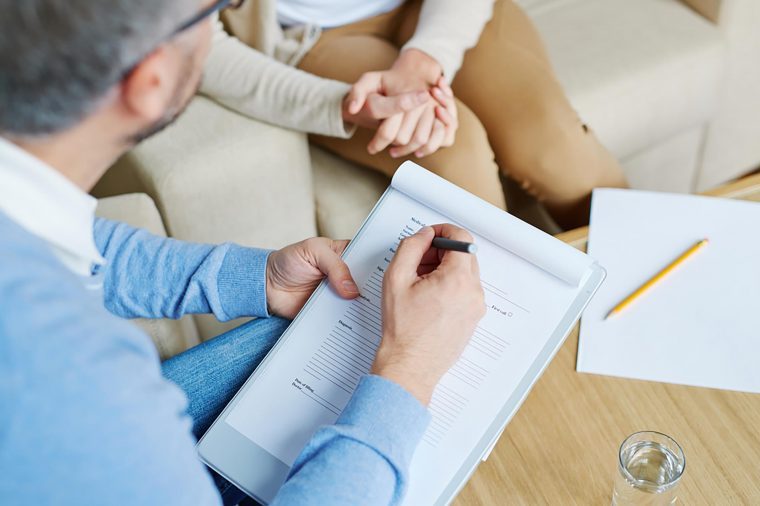
Treatment
There are many effective courses of treatment for PTSD ranging from cognitive behavioural therapy (CBT) and dialectical behavioural therapy to EMDR (Eye Movement Desensitization and Reprocessing) and art therapy. Of course, medication can help too.
Additionally, if you have turned to self-medicating to cope, check out a 12-step recovery program. Of course, a holistic approach to finding inner peace, like yoga, exercise, and meditation, are also helpful. (Check out the potential health benefits of daily meditation.)
“The sooner you ask for help, the sooner you will begin to feel better. Left untreated, PTSD can have a devastating effect on a survivor and her or his loved ones,” says Dr. Brown. “I know, I’ve been there. The biggest mistake I made when I left the military was not immediately getting the help I needed.”
Helaina Hovitz is an editor, journalist, and author of After 9/11.
Next, check out 10 mental health podcasts worth adding to your playlist.